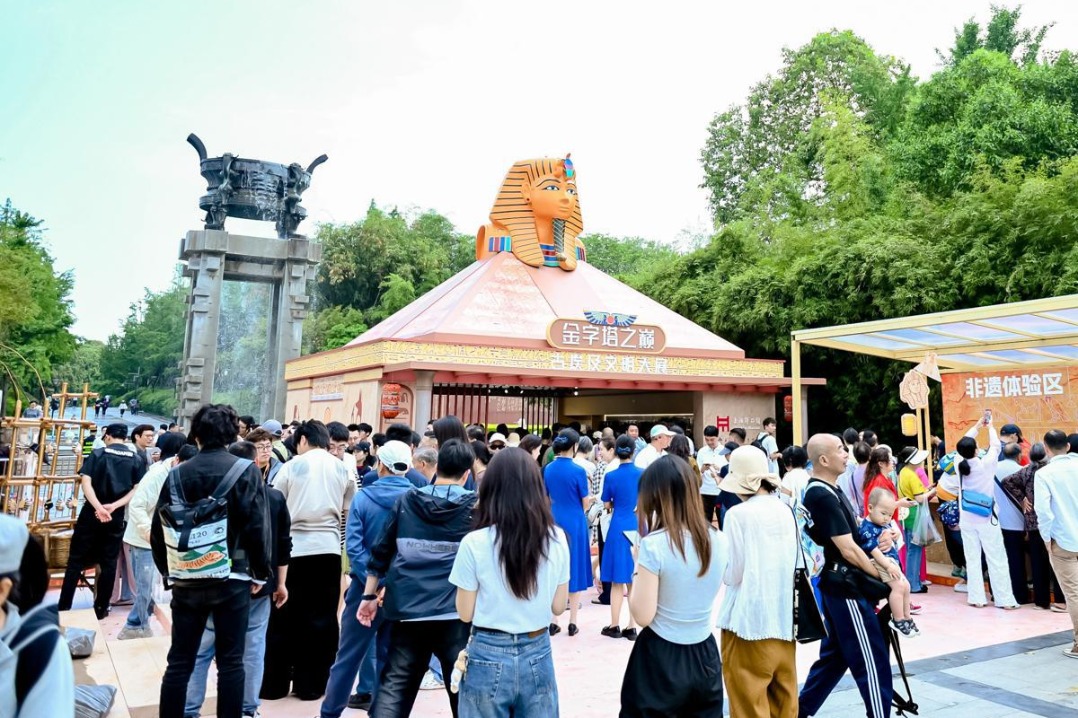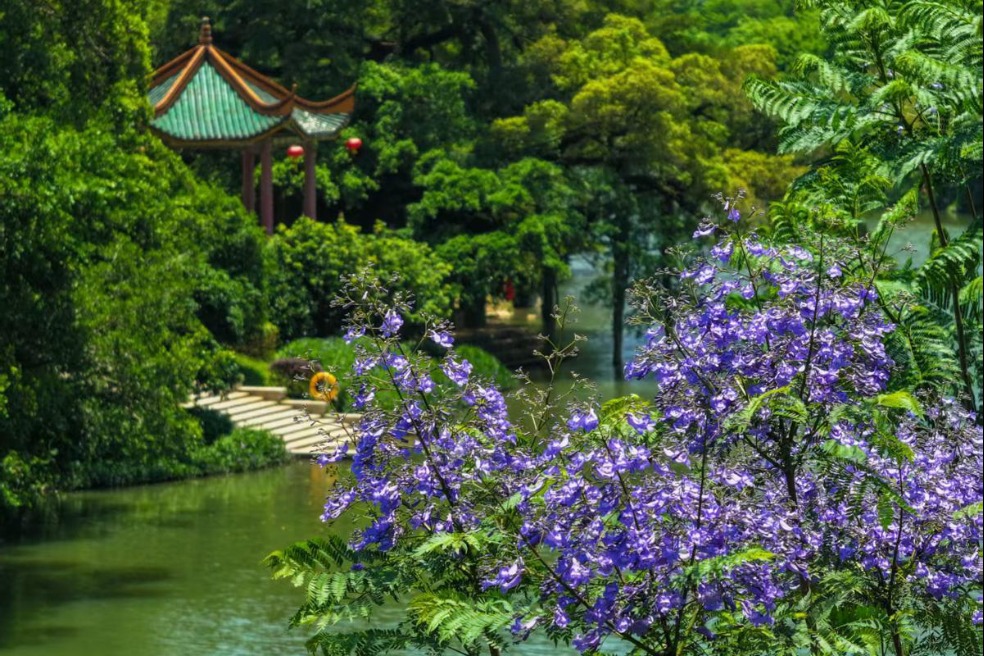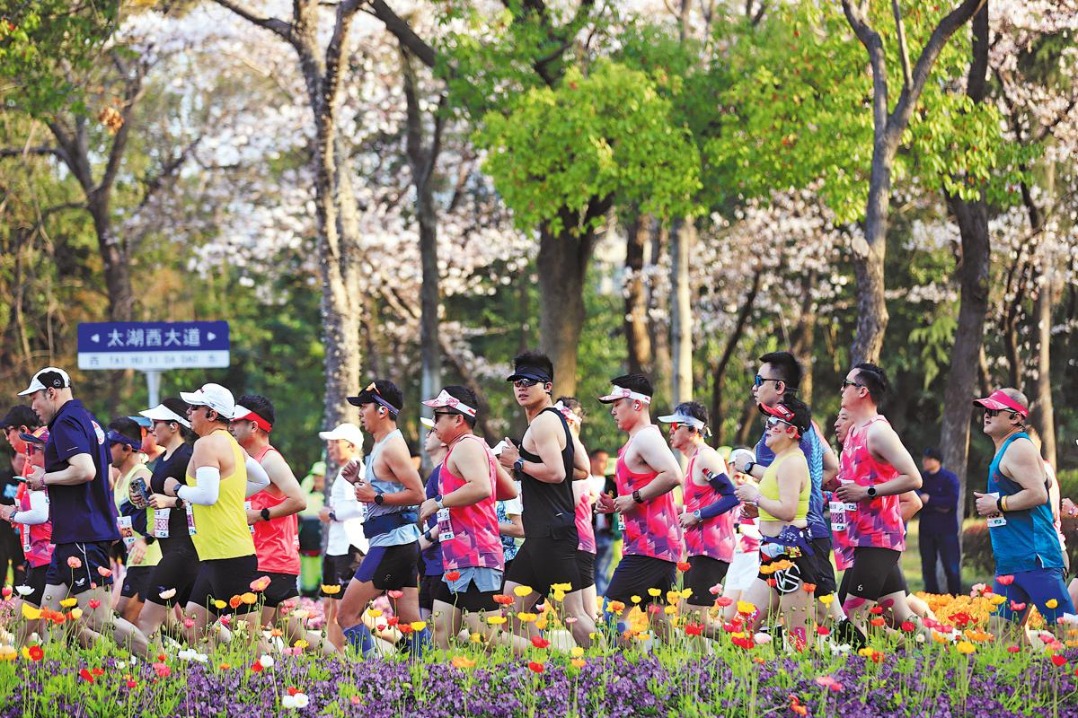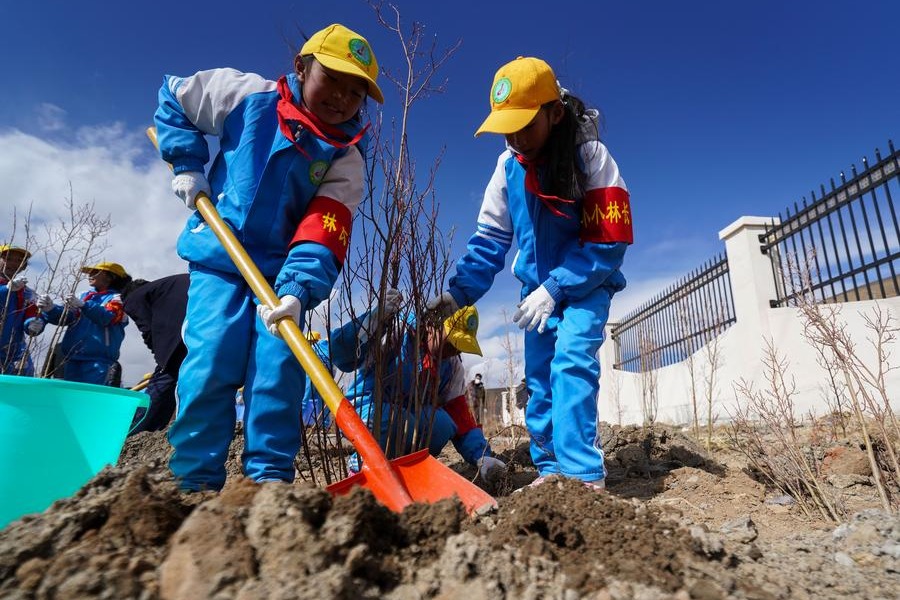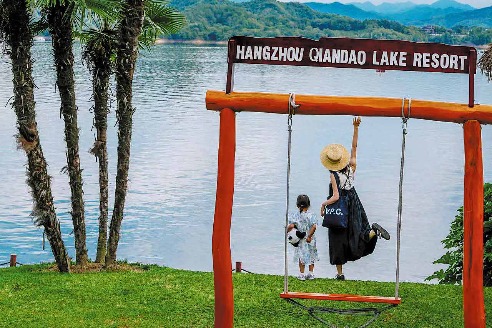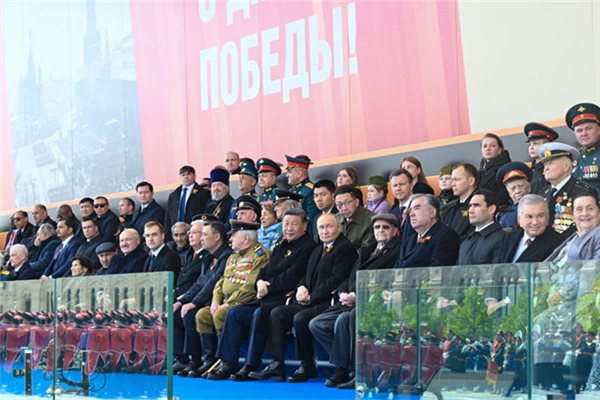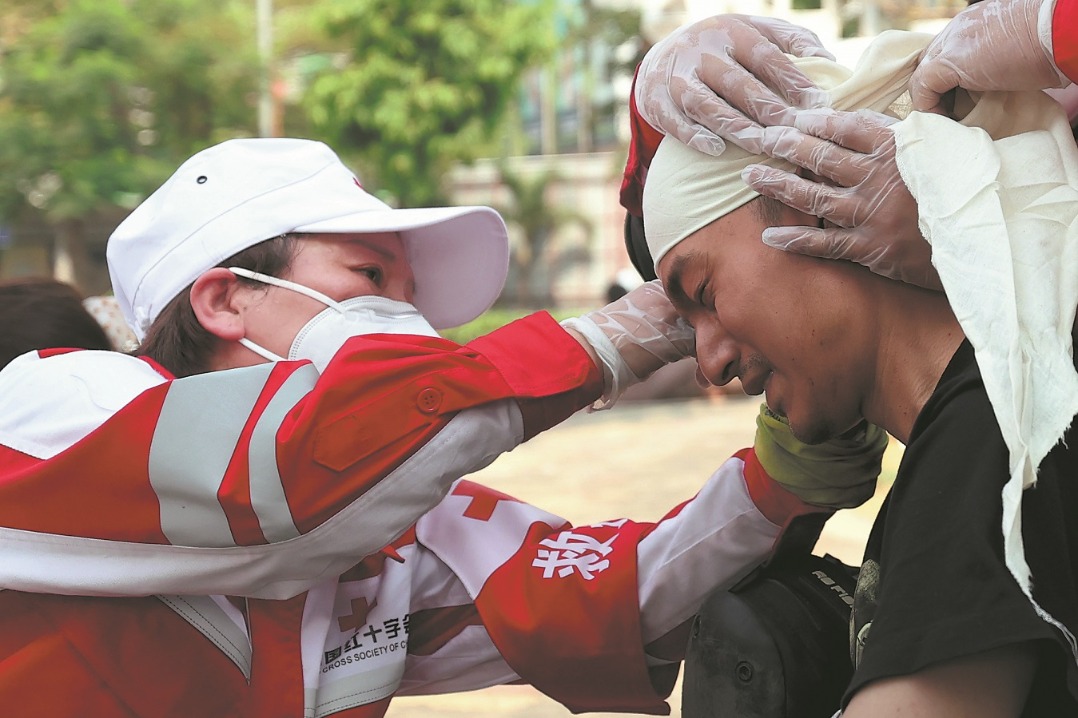Classic Moscow eatery revives fond memories
Building Sino-Russian bridges through art, cuisine and nurturing of friendships

Interest in Russian culture remains strong in China's capital, where Russian restaurants and exhibitions continue to draw crowds.
In early March, a livestreamed event at Beijing Moscow Restaurant, known locally as Lao Mo, showcased traditional Russian food and the stories behind Russian exhibits and garnered over 1 million views.
Mu Chuanxi, a Beijing resident, fondly recalled proposing to his then-girlfriend at Lao Mo in 1955. "It was the most fashionable place in the capital, and the dinner cost me three months' salary," he said.
"She said yes and became my wife. We celebrated our 30th anniversary there, ordering the same dishes, and I sang the same song, Moscow Nights, that I sang when I asked her to marry me."
More than just a restaurant, Lao Mo has been the backdrop for many significant life moments. Opened in October 1954 next to the Beijing Exhibition Center, it was the city's first high-end Russian eatery.
Liu Mei, 40, said the restaurant evokes cherished memories of her parents' generation. "I still remember the excitement when my parents first took me there as a child. My favorite dishes are borscht, beef tongue, and Russian potato salad."
Since last year, the restaurant has introduced monthly artistic events, featuring evening concerts with fine dining. These intimate performances of Western classical music, set amid candlelight and elegant decorations, have attracted a diverse audience ranging from young children to octogenarians.
Li Lifen, a woman in her 60s and a frequent attendee of the concerts, appreciates the blend of music and food in a cozy atmosphere.
"Unlike large concerts in stadiums, it feels like 'home' here, and we are closer to the artists, which is wonderful," she said. Li sometimes brings her granddaughter, who enjoys the music and the subsequent meal.
The Beijing Exhibition Center, which owns Lao Mo and was co-built by Russian and Chinese workers, has observed increased cultural exchanges, particularly in 2024, marking the 75th anniversary of China-Russia diplomatic relations. The center hosted a series of cultural events, including a Russian bread-making activity and an exhibition of Russian clothing, accessories, and handicrafts.
The center has consistently used art to foster cultural understanding between China and Russia. Since its opening with an exhibition on economic and cultural construction achievements in 1954, it has hosted over 100 Sino-Russian themed exhibitions, showcasing more than 1,000 original artifacts from Russia's leading museums, including oil paintings, sculptures, and historical archives. The center plans to further integrate art, dining, and culture at the historic Moscow Restaurant.
Meanwhile, an ancient Chinese dietary culture exhibition is currently on display at the Moscow Kremlin Museums until Aug 17. This exhibition, a key cultural exchange project of the China-Russia Cultural Year, jointly organized by the museum and the National Museum of China in Beijing, aims to offer Russian audiences a millennia-spanning exploration of Chinese culinary culture while strengthening ties between the two nations.
The exhibition features 145 exquisite artifacts, including gold and silverware, jade objects, porcelain, bronze vessels, textiles, calligraphy, and paintings related to dietary practices. These items illustrate ingredients, utensils, culinary skills, aesthetics, and rituals, depicting the daily lives of ancient Chinese people.
This event follows a similar four-month exhibition on Russian dining treasures in Beijing, which concluded on March 16. That exhibition featured items ranging from household implements reflecting Russian dietary traditions to opulent artworks from imperial banquets.
This year marks the 30th anniversary of Beijing and Moscow establishing a sister cities relationship. "The two cities share a long-standing history of friendly exchanges," said Xiong Jiuling, director of the foreign affairs office of Beijing. In 1957, the Moscow Zoo welcomed Ping Ping, a giant panda from the Beijing Zoo — the first time China's national treasure traveled abroad.
Contact the writers at dujuan@chinadaily.com.cn
?
- Classic Moscow eatery revives fond memories
- China to enhance welfare net for children living in difficulty
- More opportunities open up for disabled people
- Xi meets Serbian President Vucic
- Cutting-edge industries gather for Beijing expo
- Man transforms village through livestreaming and local specialties
















